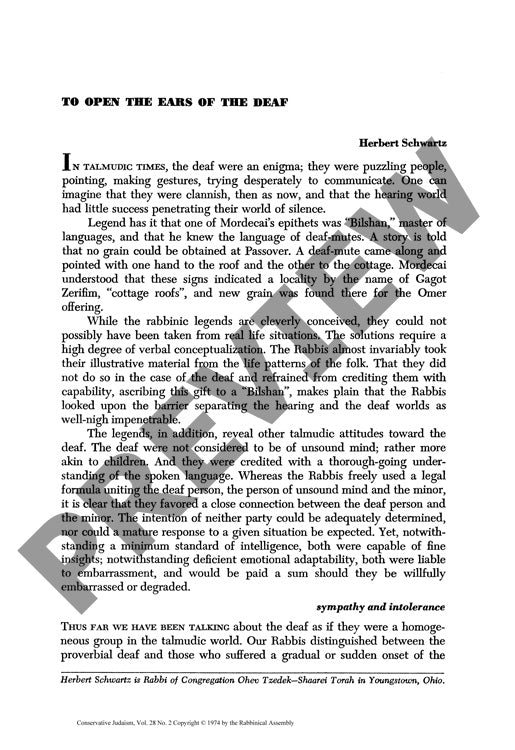To Open the Ears of the Deaf
Couldn't load pickup availability
Abstract This article examines the treatment and legal status of deaf individuals in Talmudic literature, analyzing rabbinic attitudes and comparing them with Roman jurisprudence. Using textual analysis of Talmudic sources and comparative legal methodology, the study reveals that while Talmudic rabbis demonstrated some understanding of deaf individuals' capabilities, they maintained significant restrictions based on communication barriers. The research finds that rabbis distinguished between congenitally deaf persons and those who became deaf later in life, recognizing that the latter retained previously acquired knowledge and experience. However, both groups faced limitations in public participation due to the ancient world's emphasis on verbal communication mechanics. The study identifies parallel restrictions between Talmudic and Roman law regarding contracts, witnessing, and legal testimony, though Talmudic law proved more liberal in matters of personal life, property ownership, and marriage. The analysis demonstrates that rabbinic attitudes were characterized by both sympathy and intolerance, permitting sign language for personal needs while requiring verbal expression for community activities. The findings suggest that many Talmudic restrictions were based on difficulties determining intent rather than questions of mental capacity, as deaf individuals were considered intellectually sound but comparable to minors in legal competency. The article concludes by advocating for expanded inclusion of deaf individuals in contemporary Jewish religious and legal practices, arguing that modern communication methods and educational achievements warrant reconsideration of traditional limitations.

More Information
-
Physical Description
-
Publication Information
Published 1974
ISBN
-
Publication Credits
Herbert Schwartz

